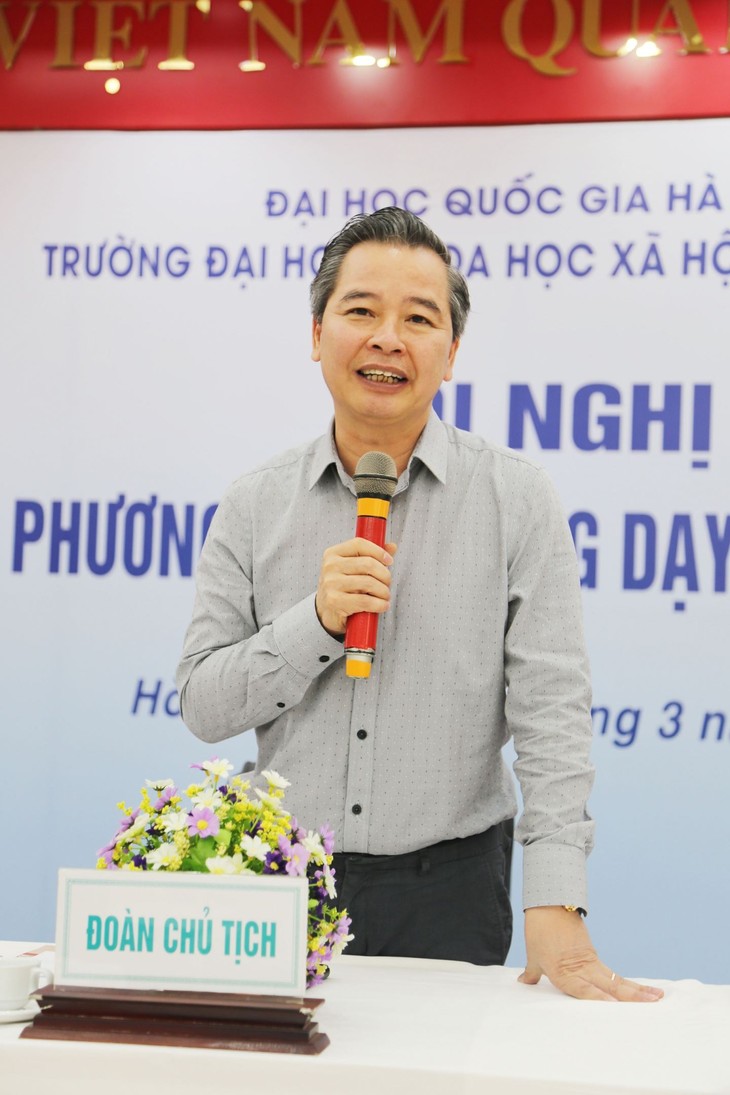(VOVWORLD) - Maintaining peace, stability, and freedom of navigation and aviation, respect for the rule of law, sovereignty, sovereign rights, and jurisdiction as defined in the 1982 United Nations Convention on the Law of the Sea (UNCLOS) are shared interests and a joint responsibility of the international community. Professor Dr. Pham Quang Minh, Rector of the University of Social Sciences and Humanities, has more to say about the issue.
|
 Professor. Dr. Pham Quang Minh, USSH Rector. (Photo credited by USSH) Professor. Dr. Pham Quang Minh, USSH Rector. (Photo credited by USSH)
|
VOV: In a recent statement, the US Department of Defense said that China’s recent actions in the East Sea stand in contrast to the US’s vision of a free and open Indo-Pacific region where all nations, large and small, are secure in their sovereignty, free from coercion, and able to pursue economic growth consistent with accepted international rules and norms. How do you view this statement?
Professor Minh: Current developments in the East Sea are making the situation more tense. The idea of a free and open Indo-Pacific region embraces the following issues. First is to ensure that the area is free, especially freedom of navigation. Secondly, it should be an area based on the law and respect for the law, particularly the 1982 UNCLOS. Third is to ensure prosperity for the region, including the East Sea. The Indo-Pacific principles themselves are also directly related to the situation in the East Sea, requiring all regional nations to respect principles such as freedom of navigation and respect for international law and norms.
VOV: How do you assess the role of the international community in pressing a country to obey international law?
Professor Minh: In a globalized and interdependent world like today, a country, large or small, cannot separate itself from international trends. In the matter of national sovereignty protection, Vietnam must take advantage of the international community’s voice and use diplomacy to settle conflicts peacefully. This point of view has been asserted since Vietnam promulgated a new security diplomacy strategy in 1988, which I think, is still valid. It’s based on three pillars - a strong economy, a sufficiently strong defense, and an open diplomacy. In particular, the third pillar is a sharp tool for Vietnam to introduce itself to the world and share its values and perspectives, such as resolving disputes by peaceful means, without using or threatening to use force. These are immutable principles. This is the time Vietnam should use diplomacy to safeguard national sovereignty.
VOV: How important is the preservation of peace and stability and cooperation in the East Sea for Vietnam?
Professor Minh: Without peace there will be no development. Vietnam asserted that stance right after the end of the Vietnam War in 1975. The resistance wars against French colonialists and American imperialists and the wars to defend the southwestern and northern borders have proven that it is impossible to develop without peace.
Therefore, in the 1980s, Vietnam’s top priority in its foreign policy was to create a peaceful environment. And Vietnam and the other ASEAN members have kept the region peaceful since the Cambodia matter was settled in 1991. This has been the success of Vietnam and the whole region.
VOV: What is the role of major countries in maintaining peace and stability in the East Sea?
Professor Minh: The East Sea is one of the world's busiest trading routes, where countries have intertwined interests. Large countries play an important role in strengthening economic cooperation and are the ones who have spent lots of money for defense. For example, in one year the US spends more than 600 billion USD, China more than 200 billion USD, and Japan, up to 50 billion USD. These are the countries with strong defense potential so all their actions relating to security will affect other countries in the region. But even small and medium-sized countries play an important role.
ASEAN, for example, has contributed to maintaining regional peace and security. ASEAN has put forth many initiatives including the ASEAN Regional Forum, the East Asia Summit, and the ASEAN Defence Ministers-Plus Meeting. ASEAN has been very active and big countries have been participating in the mechanisms launched by ASEAN. I don’t say these are laws, but they are norms that require big countries to participate. This shows that the voice of small and medium-sized countries has significant influence on regional peace and security.